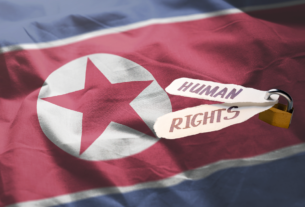A French aircraft carrier arrived in the Philippines, displaying military strength in the disputed South China Sea. The visit comes amid rising tensions over territorial claims in the region.
The nuclear-powered Charles de Gaulle docked in Manila as part of France’s Indo-Pacific strategy. Philippine officials welcomed the warship, calling it a sign of international support for regional security.
“The presence of the French carrier is a strong message of commitment to maritime stability,” a Philippine naval officer said. France has increased its patrols in the region to counter growing tensions.
The Charles de Gaulle is the only nuclear-powered aircraft carrier outside the United States. The warship carries Rafale fighter jets, surveillance drones, and advanced missile defense systems.
French naval officials said the visit would include joint exercises with the Philippine Navy. The drills aim to strengthen military cooperation and improve maritime defense capabilities.
China has repeatedly warned foreign powers against interference in the South China Sea. Beijing claims nearly the entire waterway, despite opposition from the Philippines, Vietnam, and other Southeast Asian nations.
The Philippines won a 2016 ruling at The Hague that rejected China’s claims. Beijing dismissed the decision and continued to expand its military presence in disputed waters.
France has defended its right to conduct operations in international waters. The country has carried out freedom of navigation missions alongside the U.S., the U.K., and Japan.
French President Emmanuel Macron has emphasized the importance of maintaining a rules-based order. He warned that unchecked Chinese expansion could threaten global trade and regional security.
The Charles de Gaulle’s visit follows several maritime confrontations between China and the Philippines. Philippine coast guard vessels have clashed with Chinese ships near contested reefs.
Manila has strengthened its defense partnerships with Western allies. The Philippines recently expanded a military agreement with the U.S., allowing American forces to use more bases in the country.
China has criticized the growing military ties between the Philippines and Western nations. Beijing accused Washington and its allies of provoking conflict in the region.
The South China Sea is a vital trade route, with $3.4 trillion worth of goods passing through annually. Control over its waters also gives access to valuable fishing areas and potential energy reserves.
The U.S. has increased naval patrols in the area, often conducting joint drills with allies. China has responded by expanding its artificial islands and deploying warships.
The Philippine military has urged continued international support to counter Chinese aggression. Officials say foreign military presence helps deter threats and protects national interests.
French officials confirmed that the Charles de Gaulle will continue operations in the Indo-Pacific. The warship is expected to visit other regional allies before returning to France.
The European Union has expressed concerns over China’s territorial expansion. EU officials have called for peaceful negotiations and adherence to international law.
China’s foreign ministry stated that foreign warships should not interfere in regional matters. Beijing insists that its activities in the South China Sea are legal and defensive in nature.
Southeast Asian nations remain divided on how to address China’s growing power. Some countries support increased Western military involvement, while others fear escalating tensions.
The situation in the South China Sea remains volatile. Regional powers and their allies continue to seek diplomatic and military solutions to maintain stability.




